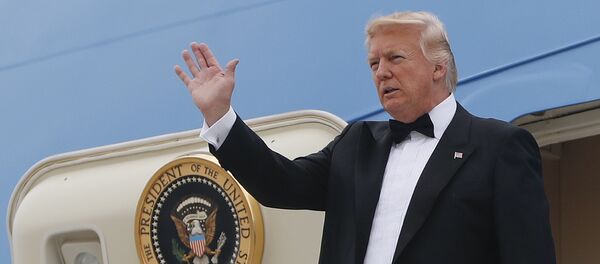There's a prevailing narrative across the world, especially in the West, that Samuel Huntington's so-called "Clash of Civilizations" is a powerful factor influencing International Relations nowadays, so in this context it's highly symbolic that Trump is visiting some of the most well-known – but not exclusive – centers of Islam, Judaism, and Christianity. This is expected to send an even more powerful message than when Obama went to Egypt right after his election and gave his famous speech in Cairo. What Trump wants to demonstrate is that the US is capable of bringing all three of the world's main religions together under its leadership, ostensibly in order to collectively fight against terrorism.
On the other hand, however, Saudi Arabia and Israel are the US' chief Mideast allies, and all three are equally opposed to Iran, so Trump might have some ulterior motives in paying those two his first overseas visit. In addition, Trump's travels to Saudi Arabia will see him participate in an international Islamic summit attended by the Kingdom's allies, though of course noticeably excluding Iran, which might send off a sectarian signal. There's no such sectarianism that can be identified in Trump's trip to Israel, though what he says and does while there might make or break any prospects that he'll be able to broker peace with the Palestinians. Lastly, the visit to the Vatican is very important for Trump's base because they see it as the American President proudly standing up for Christianity abroad, something which he promised he would do during the campaign.
Andrew Korybko is joined by Don DeBar, host of a syndicated daily radio newscast CPR News, and Sarah Abed, independent journalist and political commentator.
We'd love to get your feedback at radio@sputniknews.com
Have you heard the news? Sign up to our Telegram channel and we'll keep you up to speed!


